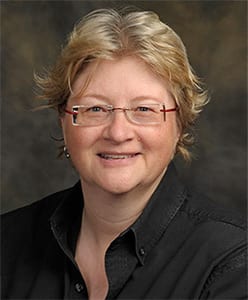
Date: Thursday, November 19, 2020
Where: Talk scheduled via Zoom
Speaker: Lana Williams, Ph.D.
Associate Lecturer
Department of Anthropology
University of Central Florida

Abstract: Welcome to our gustatio, a light lunch of starters! We will share a virtual tasting of daily fresh breads, herbed olives in oil, and drink a full-bodied raisin wine or posca, a cold, watered-down vinegar. Then, we will enjoy the delicacies of our table, cold boiled veal slices with a savory, peppery fish sauce and crispy, roasted and honey-glazed dormice. Sounds delicious! Or does it?
Our modern system of tastes that seem so “naturally” preferable to us are very different from those of the past. The perfect meal of ancient Pompeii and the Roman World was one where all the tastes, and therefore all the virtues, would be simultaneously present. These tastes developed a model of cuisine based on the blending of a multitude of flavors and textures rather than being singular or distinct. This “structure of taste,” strongly correlated with the philosophy and worldview of those living in Pompeii, at times serves as a barrier for us in understanding a reality so different from our own.
Biography: Dr. Lana Williams is a bioarchaeologist specializing in research of human health and diet. She received her Ph.D. in 2008 from University of Western Ontario and was awarded the Governor General’s Academic Gold Medal in 2009. She has been a member of the Dakhleh Oasis Project in Egypt since 2002, the Katholieke Universiteit Leuven project at Dayr al-Barsha in Egypt since 2006, and also works with various archaeological projects inEurope, the Near East, and Mesoamerica. The central goal of Dr. Williams’ research is to better understand the synergistic complexities among biological, social and physical environments in the past. She focuses particularly on isotopic and elemental analysis of hair, seasonality in fertility and disease, musculoskeletal biomechanics and patterns of activity, and placement of the dead in the physical and social landscapes.
Dr. Williams’ research contributions have been published in journals such as the American Journal of Physical Anthropology, International Journal of Osteoarchaeology, American Antiquity, and Practical Diabetes International. She has published a book titled Forensic Recovery of Human Remains: Archaeological Approaches, 2nd Edition (with co-authors T. Dupras, J. Schultz, and S. Wheeler, CRC Press, 2011). Dr. Williams joined the faculty in2013 and teaches Life and Death in Ancient Egypt, Human Biological Diversity, Medical Anthropology, Nutritional Anthropology, History of Anthropological Thought, Forensic Archaeology Field Methods, and Seminar in Biological Anthropology.
